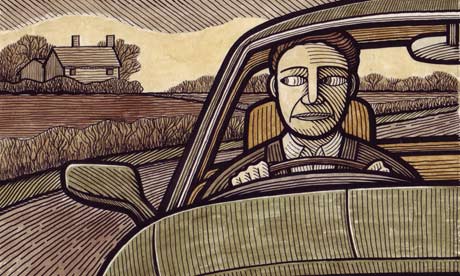
Deirdre Madden's novels have long been saturated with ideas of memory's relationship to time. She dramatises the ways in which an individual may inhabit several different times at once within an ordinary day, or even hour. In her 1996 novel, One by One in the Darkness, three sisters come together in their mother's house, shortly before the IRA ceasefire in 1994. The characters have no sense that this is imminent. Instead, their every thought and action is shaped by the decades of conflict during which they have come to consciousness and then maturity. The Troubles exist in a present tense where every act contains the past and implies the future. The brutal killing of the sisters' father is not a matter of the past, but of every living moment.
Madden's new novel, Time Present and Time Past, is set in Dublin rather than in the north, and yet remains strongly connected to the rural Catholic life of Madden's upbringing in County Antrim. It is 2006, and the Celtic Tiger is at its height. Fintan Buckley, a legal adviser in his late 40s, possesses high intelligence, success and money, although a certain innocence – even gormlessness, in his wife's eyes – preserves him from the uglier delusions of financial euphoria. Again, the characters' world is about to be changed utterly. This is not only Fintan's story; the subject is a family rather than an individual. The Buckleys are originally from County Armagh, but the childhood bonds between Fintan, his sister Martina and their father's family on the farm have been broken. Fintan holds his mother responsible, although it slowly becomes clear that, again, it is the Troubles that have penetrated a family and altered it.
This is a subtle, deeply thoughtful novel, its tone so clear that the writing plays over character and action like water over stones. As in Madden's Orange prize-shortlisted novel Molly Fox's Birthday, middle age is a time for transformation as well as reflection. Fintan is, one might say, losing his grip. He cannot believe in the story that the old Ireland has been replaced by an infinitely more promising version. Failure is "unpopular", and yet success is a matter of expensive meals gobbled down because there is no time to linger, aggressive drivers, exhausted parents rushing to daycare centres, and baby buggies so big that "you could invade Iraq in a thing like that".
Visions of alternative reality seize Fintan. He sees his own face on that of a divorced father, separated from his child. He discovers his sister's double in a late-Victorian photograph. But his unease and nostalgia are countered by his son, Niall, presented as an idealist and yet also, perhaps, the most realistic of the Buckleys. Niall rejects the laundering of the past by the heritage industry. "Can you imagine nursing someone with diarrhoea in a house with no bathroom?" Clearly, Fintan cannot. Privileged through his education and status, he is also pampered by his wife, Colette, who relishes her role as a kindly domestic goddess in an unravelling Aran sweater. A flaw in the characterisation of Fintan is that there is little sense of the abrasiveness of his career, or that his cast of mind has been formed by legal practice. His sister Martina's ownership of an exclusive dress shop is more convincing, and organic to the character.
Fintan fights to preserve key moments of domestic happiness, as if he were photographing them, but his son laughs at this, although affectionately. The beloved images of the past are "just a construct, Dad".
Throughout the novel, Madden opens the question of how far the idea of family intimacy corresponds to the facts. The chief trauma of Martina's life is unknown to any other member of the family. Neither Fintan nor Martina know that their mother, Joan, can hardly bring herself to walk past the National Maternity hospital because of the memories it brings back. They see her as a kind of monster, feelingless, blithely unaware. This beguiling novel is also a clear-eyed, even forensic study of a family crammed with secrets to the point of sickness, reflecting a wider society that bolts down consumer goods in order to purge itself of the past.

